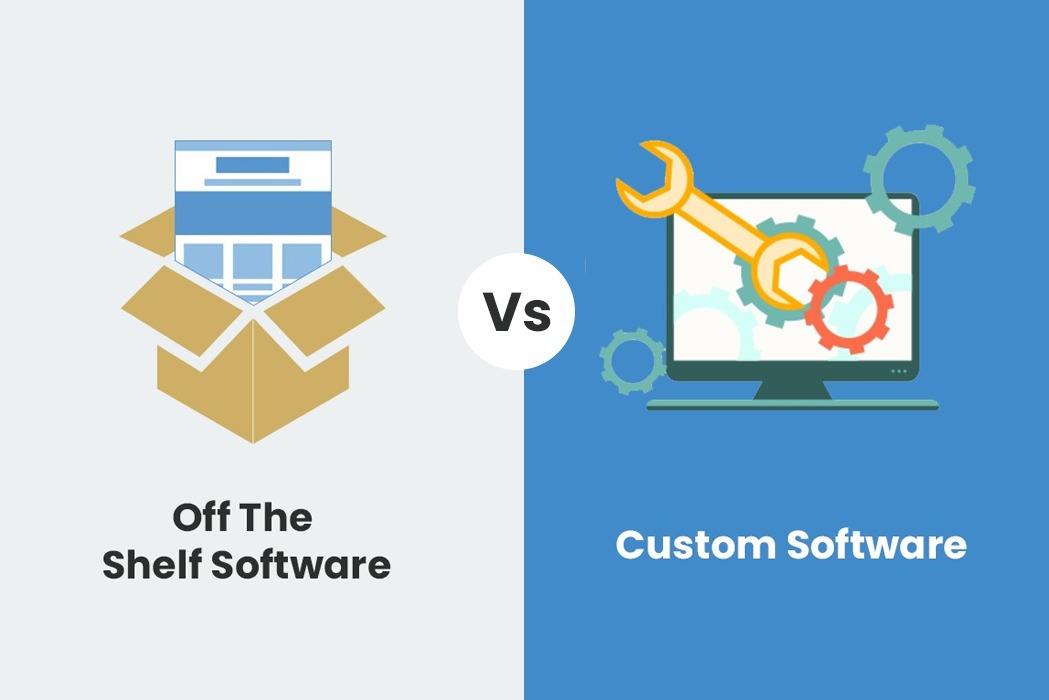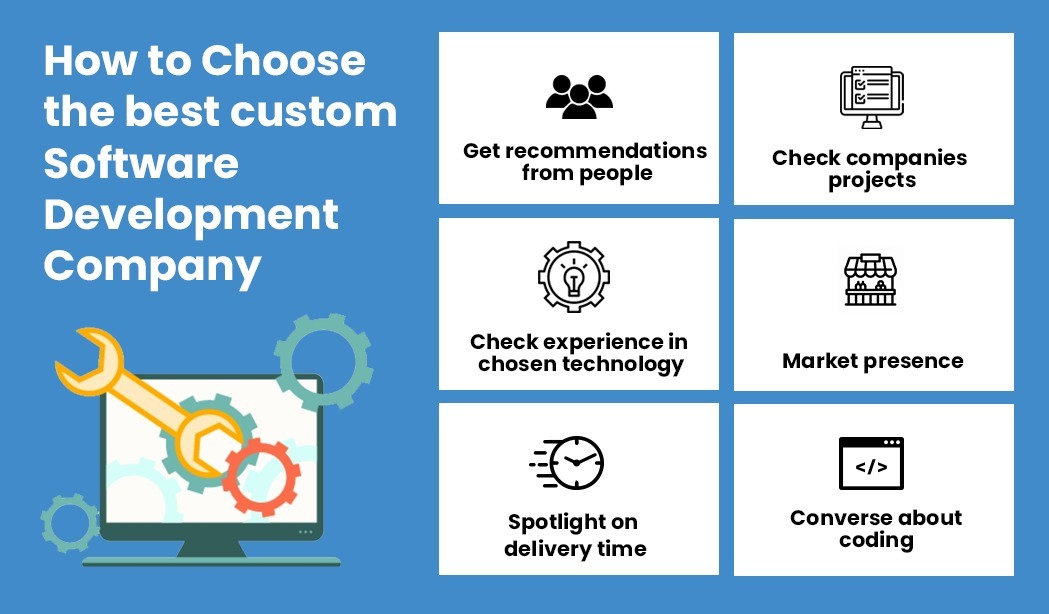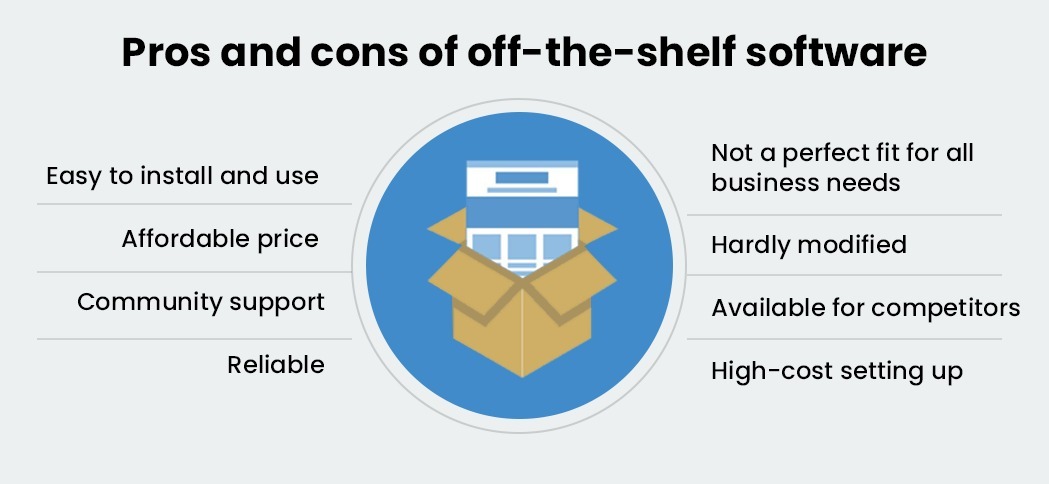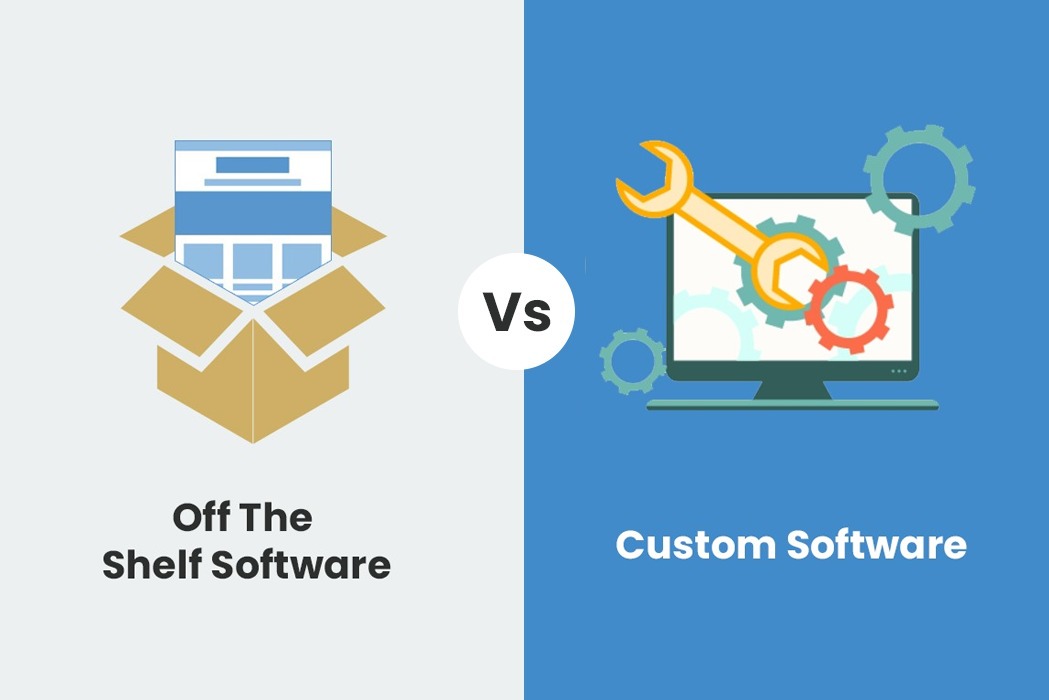
According to Oracle Netsuite’s ERP market statistics, 50% of businesses are planning on acquiring or updating their ERP systems. The biggest decision, as a business, will be whether to implement a custom-made ERP system or buy an off-the-shelf one.
As an entrepreneur, your primary goal is to enhance revenue, profitability, and return on investment and your software solutions must help reach these goals. Making the right choice between the two can mean successful ROI or problems down the road. To iterate, both have their advantages and it all depends on what your organization requires. Let us, deep-dive, into the pros and cons of both software.
Why custom ERP software is effective in the long term
To start with, ERP or Enterprise Resource Planning has a primary goal: To automate as many business processes as possible and make inter-department communication easier. Every business has different processes, developed over time. This is the reason why many medium to large organizations prefer customized ERP software solution that is unique to their needs.
SCM and Manufacturing is a common use case for cross-departmental collaboration. The integrated ERP solution brings together sales, finance, inventory, production, and logistics to automate processes, whatever be the load. A typical order will follow these steps
- Generation of the purchase order for the customer by the sales module
- It is automatically entered into the order management solution
- An order entry is generated and it goes to inventory management to procure raw material
- It then gets logged into the packaging and shipping department software, where a barcode is added so every department can track the order
- The automated process notifies the sales department to create the sales order that will include freight charges and taxes.
Obviously, this is a complicated process to automate and an out-of-the-box system will have limited flexibility, unlike a custom solution.

The charm of off-the-shelf ERP system
Off-the-shelf ERP software, popularly known as OTS, is ready to deploy solutions. It comes with preloaded capabilities that have been thoroughly tested and verified before release. With their one-size-fits-all approach, it might not be able to tackle your specific challenges in the best possible way. In fact, its biggest limitation is that business processes have to be changed to fit in with the OTS rather than the other way around.
OTS or SaaS solutions can be quickly implemented will little to no customization. They are cheaper because you pay for user-by-user access to the ERP application and don’t get a license to the application itself. It has a yearly subscription-based cost. The advantage for off-the-shelf ERP applications is that new features and upgrades are the responsibility of the vendor and so your software is always up to date with no effort from your side.
Off-the-shelf ERP software makes a lot of sense for small businesses that have limited budgets and want quick implementation time. There are many instances where ready-made solutions are the best option. Consider how much money Microsoft spent on Microsoft Office so that its customers can buy it for £7.99 per month! When Microsoft Office (or a competitor program) is available for such a low price, no company would seriously consider developing its own word processor software.

Pros and Cons of Custom ERP Software vs Off-the-Shelf ERP
There are always 2 sides to a coin, so understanding the advantages as well as disadvantages of each will help make your decision easier.
Scalability: Will you be future-ready?
Both types of software are inherently scalable. SaaS products are designed to grow, expand, and be enhanced. The risk with off-the-shelf software is that since you do not own the product and so scalability might be less than what you need. Also because you are subscribing to ready-to-use software, it will have many functionalities that you might not even need.
Custom ERP solutions since they are designed for your business, can more easily adapt to new business needs. No matter how versatile the SaaS product is, it can never meet 100% of the business requirements. A custom ERP should be the best option if different departments in your organization are currently using different software. This affects productivity as there is no single point of truth. Future-ready solutions that use AI, NLP and ML to automate workflows are most often based on custom ERP solutions because they centralize data through integration layers.
Deployment time: A quick fix or personalization?
Numerous improved off-the-shelf ERP software systems are available today that provide predefined necessary solutions to your business challenges. They’re simple to use, quick to install and come with a variety of support packages.
Since custom solutions are built from scratch, you must add on the time for scope finalization before the actual custom software development time. Depending on the size and complexity, custom solutions can take months and sometimes more than a year to deploy. If you want to deploy a solution within weeks, and are not particular about it being a perfect fit, then it makes more sense to go for prepackaged software. But the same could be said about any customization you want to add to the SaaS software. Such a white-label software or hybrid model will require time for development and will take months to be tested and deployed.
Related article: Obstacles to Avoid to Prevent Software Project Development Delays
Cost-effectiveness: What about the hidden expense?
The built-from-scratch nature and endless customization that is possible with a custom software solution, does mean that you’ll likely be looking at a larger upfront investment. It’s important to note, however, that the solution’s efficiencies and software ownership will be more profitable in the long run.
Out-of-the-box software may appear to have a lower upfront cost but in the long-term many hidden costs will surface. There is a yearly subscription cost, add to that the costs for extra user customization and maintenance. Also, many ERP solutions, like Oracle, have an approved partner list for maintenance and customization. They can charge 2 to 3 times the hourly rates of companies who develop solutions in low-code languages such as .NET or NODE.js. This is a reason why many organizations prefer working with a reputed custom development partner, where all costs are upfront.
The final takeaway
Whatever be the final decision, it will have far-reaching consequences and will shape your technology strategy for many years to come. Begin with carefully assessing the challenges in your current software and if you can meet them with an off-the-shelf solution. To sum it up, go with a full-blown custom solution if you have specific requirements that cannot be met with an existing solution. It all comes down finally to whether you have the budgets to pay for the higher upfront cost.
Speaking from 18 years of custom software development, at iTech, we have always found that companies reach a point when they realize that they need to switch to custom software to meet their business needs. If you are still having difficulty in making decisions, speak to our experts to help you on this front.










